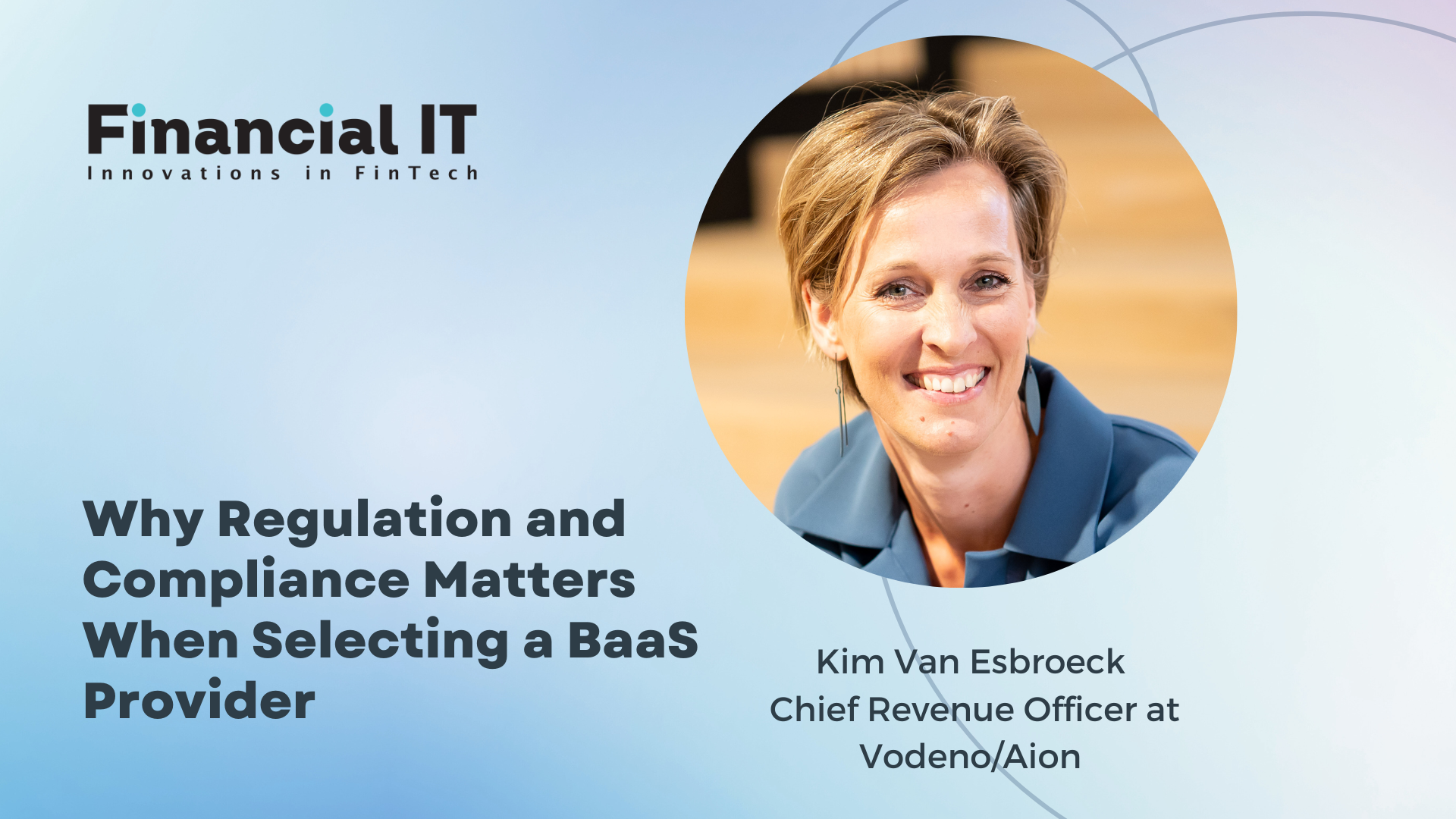Why Regulation and Compliance Matters When Selecting a BaaS Provider

- Kim Van Esbroeck, Chief Revenue Officer at Vodeno/Aion
- 11.09.2023 12:45 pm #compliance
The term ‘BaaS provider’ can have different interpretations. The first Banking-as-a-Service (BaaS) providers were tech firms, focused on offering API-based core banking solutions to banks with legacy systems. The next generation of BaaS providers combined API-based platforms with regulated financial infrastructure to provision banking products and services – retail or corporate – through third-party distributors.
Today, BaaS enables non-financial businesses to embed banking products directly into their website or app, offering a better customer journey. Businesses adopting BaaS products benefit from speed and cost efficiency by leveraging the technology and necessary banking licence of the provider. But brands considering BaaS also need to consider regulation and compliance, as not all providers offer the same support on this front.
More than just the underlying technology, a BaaS provider’s services will be dependent on their type of licence, and the level of expertise regarding compliance and risk management will be critical in evaluating which provider is right for your business.
Navigating the compliance landscape
Different financial products come with varying compliance requirements. Simple payment solutions often have lighter requirements, but newer lending products like Buy Now, Pay Later (BNPL) can be more complex due to changing regulations and credit decisioning for lending money to consumers. To offer such products, a BaaS provider needs a full banking licence.
BaaS providers’ licences will differ. Some have Electronic Money Institution (EMI) licences, which enable them to issue electronic money and offer payment services but lack access to local clearing houses/IBANs and cannot accept deposits or provide lending services.
Brands seeking to offer lending products like Buy Now, Pay Later (BNPL) customers must partner with fully licensed providers to access the maximum benefits flexible payment solutions have to offer. These providers can offer a comprehensive range of financial services and ensure regulatory compliance and expertise, making them the only suitable choice for such endeavours.
The costs of partnering with the wrong provider
Involving more parties than necessary often leads to more complex compliance requirements, causing uncertainty about risk management responsibilities. This complexity can result in delayed product launches, higher costs, and increased difficulties in managing relationships with regulatory authorities. Inadequate support may lead to outsourcing or hiring an in-house compliance team, both of which can be quite costly.
Partnering with a BaaS company that can handle compliance and anti-fraud is crucial for smooth business scaling. With the right BaaS provider, thanks to their full banking licence and compliance expertise, businesses can focus on their strengths without extra costs or reliance on additional institutions.
What technologies play a part?
There are some key technologies that adopters should keep in mind when selecting a BaaS provider. For example, secure, end-to-end remote onboarding is something that can differ significantly throughout Europe. Partnering with a provider that has expertise in this space, and is fully compliant with all Know Your Customer (KYC) and Anti-Money Laundering (AML) regulations in the countries in which they are operational, is vital for a safer, smoother customer experience. The most robust onboarding solutions should include technologies like liveness checking and facial recognition, tailored to the specific regulatory requirements of local markets.
Indeed, a strong KYC and AML solution is fundamental when it comes to safeguarding against fraud, money laundering and financial crime. Firms that do not meet requirements can face serious reputational damage if these matters are not taken into consideration – not to mention fines for failing counter-terrorism financing and AML compliance.
Marrying tech, licencing and compliance expertise
For brands new to the financial services industry, partnering with a BaaS provider that can meet the technical, banking licence and compliance requirements is a must.
BaaS adopters should actively seek out providers that have proven compliance expertise, and those that incorporate advanced technologies to ensure adherence to all necessary regulations. By opting for a BaaS partner with a well-rounded compliance framework, businesses can focus on their customers, knowing that their provider is handling everything in the back end.























